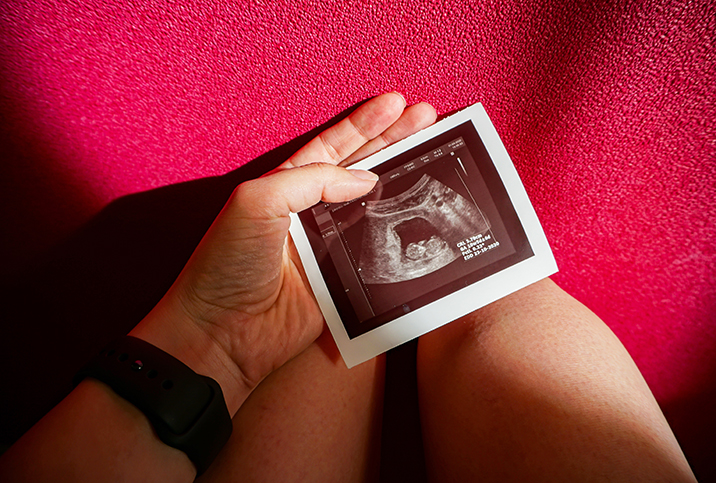New Army Miscarriage Leave Policy Helps Non-Birthing Parents Grieve

Following a recent change in policy, the U.S. Army will now grant convalescent leave—paid absence from duty—in the case of a miscarriage, stillbirth or loss after birth to both parents, allowing them time to grieve. This move makes the Army the only branch to provide this support to the non-birthing parent.
With more than 400,000 active-duty service members, the Army is the largest branch of the U.S. military. The Army miscarriage leave policy also applies to the National Guard and the Reserve.
"Whenever the Army leads on policy change, it directly impacts the greatest number of lives," said John Crowley, the head of military affairs at Legacy, a digital fertility clinic in Boston, and a captain in the Army Reserve.
The Army's Parenthood, Pregnancy and Postpartum directive includes several policy changes, another of which is designed to create stability during fertility treatments. This applies to both the parent experiencing treatment and their spouse. They will be excluded from permanent change-of-station moves and deployments for up to a year while undergoing fertility treatments.
Of the six new components outlined in the directive, five were suggestions that originated from direct soldier feedback.
"Taking care of soldiers is always the right thing to do. Army leadership solicits feedback from the force to create policy that promotes quality of life for service members and their families," Crowley said.
Retaining the family retains the service member
Nearly half of active-duty respondents indicated the military created challenges in family building, according to the 2021 Military Family Lifestyle Survey Comprehensive Report. This number rose to more than half for LGBTQIA+ active-duty family respondents.
The challenges of family planning, pregnancy and parenthood can come at any point during military service, but the Army stresses that starting a family will not hold back careers. This change in leave regulations brings the Army more in line with employment opportunities outside the military that threaten its ability to retain soldiers.
Allowing one to take leave after miscarriage recognizes the need to grieve.
"Reproductive health is a component of military readiness. It's also a leading indicator of retention," Crowley said. "If military service members are struggling to build families, retention becomes more challenging. In aggregate, retention challenges due to family building is a national security issue."
"We recruit soldiers, but we retain families. Winning the war for talent means making sure our best and brightest people don't have to choose between service and family," said Gen. James McConville, chief of staff of the Army, in an article published by U.S. Army Public Affairs.
Miscarriage leave affects non-birthing parents, too
Convalescent leave has been granted to Army soldiers experiencing a miscarriage, but it has not previously applied to their spouses. Now the Army miscarriage leave policy allows the non-birthing parent time off to grieve as well. Spouses and partners are often overlooked because they are not the person who physically carries the baby. However, they can feel the loss just as much as the birthing parent.
Many fathers are unsure of how to deal with the loss of their baby, and employers often don't allow time off for them to mourn, process emotions or support their partner.
Leave after miscarriage is essential to people who have suffered this loss, said Sara Mucowski, M.D., a board-certified physician in reproductive endocrinology and infertility and obstetrics and gynecology at Dallas IVF fertility center.
"While miscarriage is common, it is too often kept secret," Mucowski said. "Thankfully, allowing one to take leave after miscarriage recognizes the need to grieve. We would never expect someone to return to work after the loss of a loved one, and the loss associated with miscarriage is even more complex."
Mourning a miscarriage includes not only the loss of the pregnancy but also the loss of what could have been. The Army miscarriage leave policy allows both partners time to grieve.
"I hope we see more companies follow suit and allow their employees the opportunity to take the time they need to process these difficult emotions," Mucowski concluded.
Editor's note: The opinions expressed by John Crowley are his own and do not reflect the views of the U.S. Army or the Department of Defense.


















